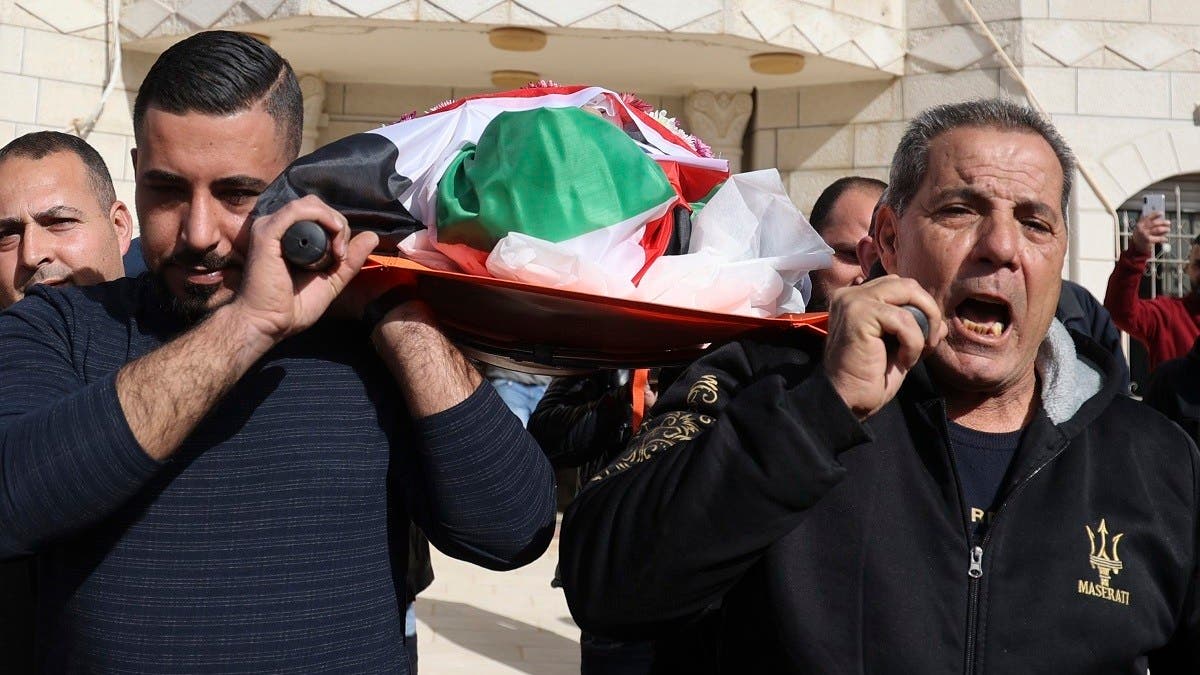The Israeli military said on Tuesday it would reprimand a senior officer and remove two others from leadership roles over the death of a 78-year-old Palestinian who was dragged from a car, bound, and blindfolded after being stopped at a checkpoint.
It said the soldiers believed Omar Asaad was asleep when they cut his zip-ties and left him face-down in an abandoned building where he had been detained with three other Palestinians. The other detainees said they did not know he was there until after the army left.
For the latest headlines, follow our Google News channel online or via the app.
It’s unclear when exactly he died. He was taken to a hospital and pronounced dead after the other detainees found him unconscious.
“The investigation concluded that the incident was a grave and unfortunate event, resulting from a moral failure and poor decision-making on the part of the soldiers,” the military said in a statement. A separate criminal investigation by the military police is still underway.
Asaad had American citizenship and extended family living in the United States. The State Department had expressed concern over his death and called for an investigation. Two members of Wisconsin’s congressional delegation called on the Biden administration to investigate.
The Israeli military says it thoroughly investigates such incidents. But rights groups say Israel rarely holds soldiers accountable for the deaths of Palestinians. Even in the most shocking cases — and those captured on video — soldiers often get relatively light sentences. Palestinians insist they suffer systematic mistreatment living under military occupation.
A Palestinian autopsy said Asaad died of a heart attack “caused by psychological tension due to the external violence he was exposed to.” It said he suffered from underlying health conditions, but also found bruises on his head, redness on his wrists from being bound, and bleeding in his eyelids from being tightly blindfolded.
Asaad was stopped at around 3 a.m. at a temporary checkpoint in his home village of Jiljiliya, in the occupied West Bank. The military said he did not have any form of ID and “refused to cooperate with the security check." Its investigation found there was no use of violence “apart from when (Asaad) was apprehended after refusing to cooperate.”
It said the soldiers “did not identify signs of distress" when they released the detainees a half-hour later. They “assumed that (Asaad) was asleep and did not try to wake him.”
The military said the commander of the battalion will be reprimanded and that the platoon commander and company commander will both be removed from their positions and barred from commanding roles for two years.
Assad was born in Jiljilya but spent about 40 years in the United States. He became a US citizen before he returned to his home village in 2009 to retire with his wife, Nazmia, his family told The Associated Press.
Israel captured the West Bank in the 1967 Middle East war. The Palestinian Authority administers parts of the territory, but its 2.5 million residents live under Israeli military rule. Israeli soldiers often carry out nighttime raids, which they say are necessary for arresting Palestinian militants, and set up temporary checkpoints where Palestinians are stopped and searched.
Asaad’s nephew, Assad Assad, said his uncle and aunt left Jiljilya for Chicago in 1969 in hopes of finding better work. They moved to Milwaukee in 1974 and prospered, opening convenience stores and a restaurant, he revealed.
They were among dozens of Jiljilya residents who have returned to the village over the years to build retirement homes, Assad Assad said.
“They built mini-castles to retire in,” he said. “Very quiet, all you see is olive trees. At night, because we’re high in the mountains, you smell the orchards of oranges.”
Omar’s nephew and his son, Hane Assad, both described him as a philanthropist who was the life of the party. Hane Assad told the AP his father would often hand out money to the poor.
“He just loved everybody, no matter what race you were, what culture you came from,” he said. “He just saw you as a human being.”
His favorite dish was maqluba, a mix of rice and meat — and he loved playing cards, Assad Assad said. He was coming home from playing cards with a cousin when the soldiers stopped him, he said.
Hane Assad said his mother and father were set to visit him at his home in Chesapeake, Virginia, before his father died. Assad said his father was too old and weak to fight anyone, let alone a group of soldiers.
“He was very weak,” Hane Assad said. “He walked with a cane. It takes him five minutes to get to the car, the way he walks. He doesn’t have the power of 30 soldiers… The military said ‘we left and he was fine.’ It doesn’t make sense.”
Assad said he’s always afraid when he returns to Jiljilya because the Israelis who operate the checkpoints are rude and disrespectful. He said he was once detained for four hours on the way to his grandmother’s funeral.
The troops laugh at his American citizenship, he said.
“Every time we got stopped Dad would say ‘whatever they ask for, give it to them. Just be calm.’ Plenty of times we got pulled over and I never saw him fight,” Hane Assad said. “I can’t believe they did that to my dad. Almost an 80-year-old man. All the soldiers there couldn’t handle him? This is uncalled for. You don’t treat no elderly person like that.”
Read more:
Blinken discusses Palestinian Authority reform with Mahmoud Abbas
At a West Bank outpost, Israeli settlers flaunt their power
Palestinian refugee agency UNRWA seeks $1.6 billion

 World3 years ago
World3 years ago
 World3 years ago
World3 years ago
 Business11 months ago
Business11 months ago
 Entertainment7 years ago
Entertainment7 years ago
 World7 years ago
World7 years ago
 Entertainment7 years ago
Entertainment7 years ago






